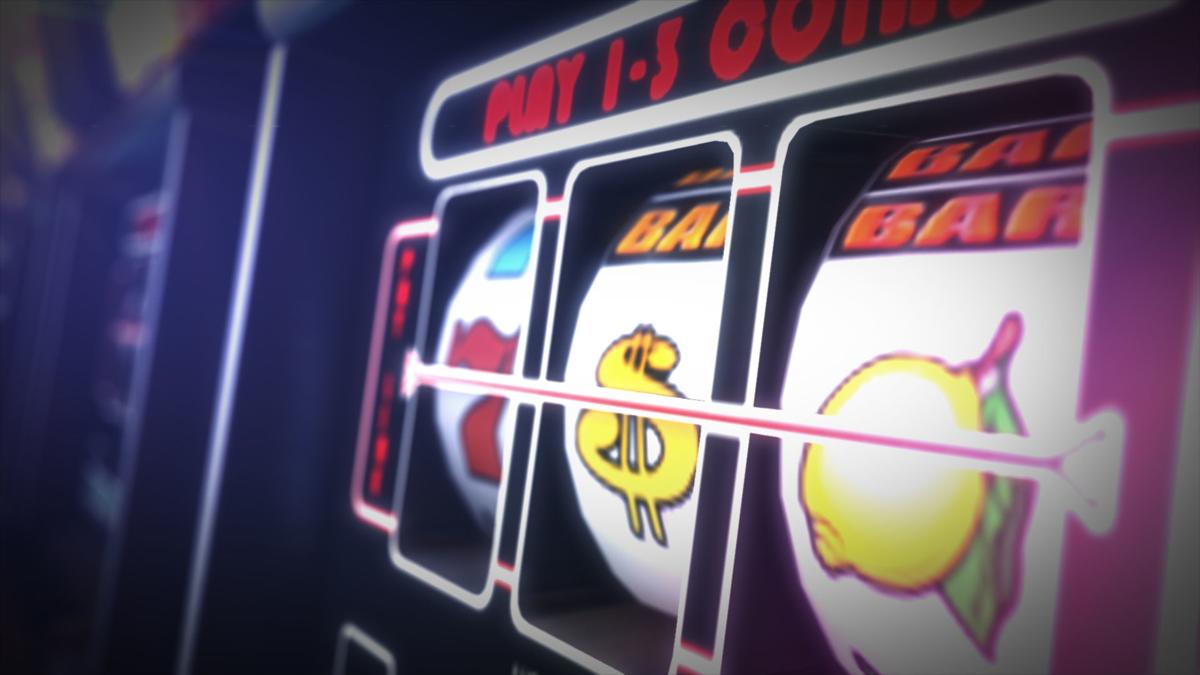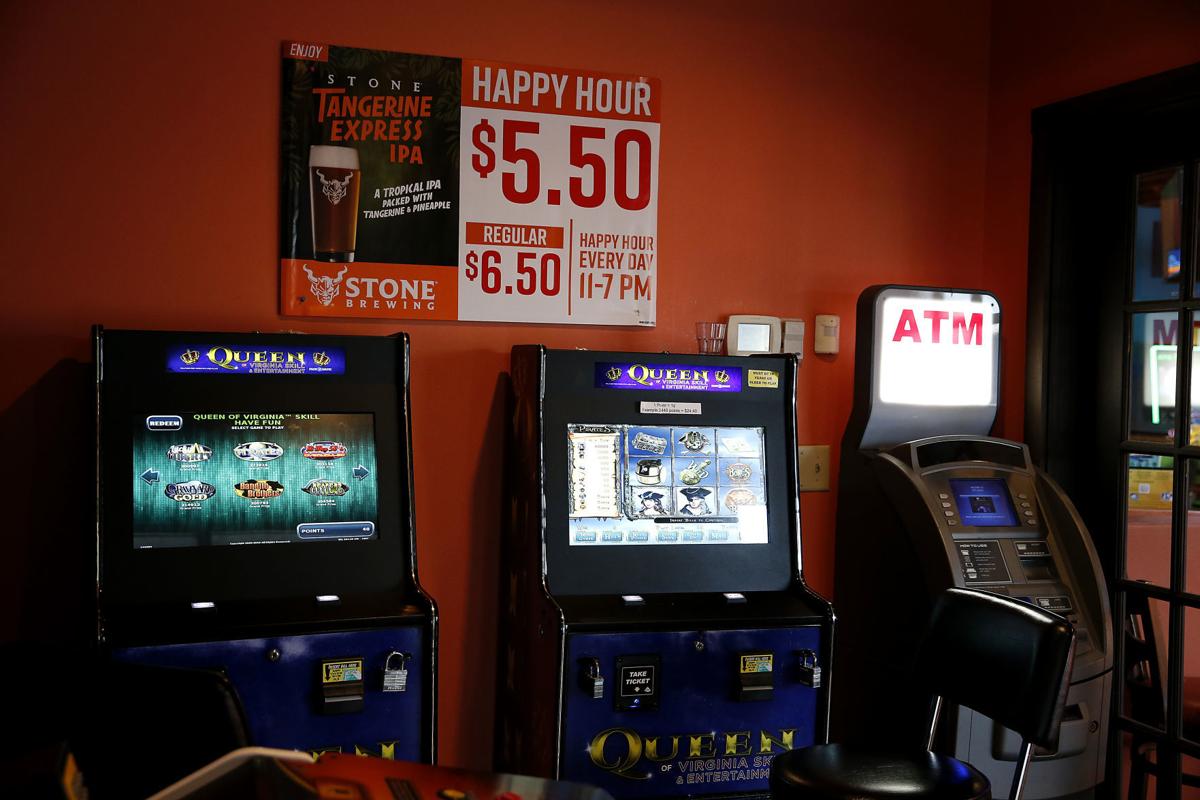Betting rules revised
- Slot Machines In Convenience Stores Near Me
- Gambling Machines In Convenience Stores Pa
- Slot Machines In Convenience Stores
The state of Virginia has recently lost its convenience store slot machines as new betting rules sweep America. While it was thought that the games would be saved under new licensing
agreements, it has now been established that they must all be removed.Usually, you stop at a convenience store to fill up or grab a snack. Georgia State law enforcement officials say there's a lot more going on inside some stores. In a special report, FOX 28's Caitlyn Penter shows us what could be happening in your neighborhood. Inside gas stations and convenience stores around Georgia, you can find what some call the state's dirty little secret.
While Virginia is generally opposed to gambling, any game that involves skill rather than just chance is legal in the state. This explains why the slot machines in convenience stores were at first believed to fall under the „legal‘ category. The justices' March 21 decision invalidated a City of Clarkston ordinance that aimed to keep the touch-screen versions of old one-armed bandits out of convenience stores. The machines in the case are the ones that are a little smaller than an old arcade game and offer match-em-up games. Prizes can be paid out in store merchandise, but not cash. Often found in bars, convenience stores, gas stations, and restaurants across the state, the machines have been given the term 'gray machines' because they operate in the gray area of Virginia law.
While Virginia is generally opposed to gambling, any game that involves skill rather than just chance is legal in the state. This explains why the slot machines in convenience stores were at first believed to fall under the „legal‘ category.
During a period of consultation with the Commonwealth's Attorney, Joseph Platania, earlier in the year, the machines were deemed to be compliant. However, this position was updated on June 7th, with the games deemed illegal. The so-called „Queen of Virginia‘ slots were given just 30 days to be removed.
Angered manufacturers and owners
The slots manufacturers and shop owners who display these machines are not happy with the turnaround. Manufacturers have voiced their concerns that Platania has ignored correspondence despite requests for meetings. They pointed out that, so far, the games have generated more than $300,000 of tax revenue for the area.
The decision has also angered owners of convenience stores where the games are kept, as many have to pay upfront. One owner is Saurabh Godhwani. He originally paid for just one machine, but then ordered another three as they became popular with customers. He has now been instructed to get rid of them all.
Like the manufacturers, Godhwani believes that the games require a degree of accuracy and timing. He claims that skills, more than luck, is the deciding factor.


With the deadline now up, Platania is expecting all stores to immediately remove any remaining slot machines from their premises.
If you want to make your local corner store owner really nervous, try asking them this question – 'How do those gaming machines work?' When I asked the owner of a store that I frequent, I got a very nervous 'Why do you ask?' in response. It seems almost every independently run convenience store I go in has a small bank of video gaming (gambling) machines, also known as eight-liners, tucked away somewhere in the store. I got curious about all these machines and thought I'd write a post to share what I found out. This is an abnormal post for this site but falls under the 'Dad is Learning' philosophy of living.
A BIG Loophole
Laws on video gaming machines vary from state to state. Texas is surrounded by states that allow gambling, leading to a high number of attempts to circumvent laws against gambling in Texas. Section §47 of the Texas Penal Code defines gambling but in §47.01(4) you will find the provision that has been litigated for over a decade that excludes 'gambling devices' that are defined as 'any electronic, electromechanical, or mechanical contrivance designed, made, and adapted solely for bona-fide amusement purposes if the contrivance rewards the player exclusively with non-cash merchandise prizes, toys, or novelties, or a representation of value redeemable for those items, that have a wholesale value available from a single play of the game or device of not more than 10 times the amount charged to play the game or device once or $5, whichever is less.' This is often referred to as the 'fuzzy animal' defense, derived from the claw games you see in restaurants and elsewhere.
The loopholes in the law are numerous. The Dickinson County Police have posted an advisement from the Galveston County District Attorney's office about this matter. Here are a few noted exceptions quoted from that site:
- Regarding the 'charitable sweepstakes' issue: Typically this is done by some type of an association being made with the charity group by the owner of the 8-liners. The players put their money into the machine as a 'donation' and you are allowed to play the game for free. At the end of the day the Charity may pay the owner of the machines $.90 out of every $1.00 collected. This is not an exception to the law.
- The use of 'door prizes' to attract customers is presumed to be legal, provided the players are not given additional entries into the door prize drawing based on the number of credits they win on a game or device.
- The following could result in prosecution – Any award of non-cash merchandise prizes, toys, or novelties that have a wholesale value available from a single play of the game or device of more than 10 times the amount charged to play the game or device once, or $5.00, whichever is less. The accumulation or stacking of credits/tickets toward the purchase of more valuable prizes will be considered to be a violation of the law if the accumulated credits exceed the maximum value for a prize which can be awarded from the machine as noted above. The wholesale value of the prize, not the ticket, available from a single play, must be no more than 10 times the amount charged to play or $5.00, whichever is less.
The Difficulty of Enforcement
Gathering enough evidence to prosecute illegal gaming operations costs thousands of dollars and numerous man hours in already stretched thin police departments and district attorney offices. The machines are fairly portable and can be removed by simply unplugging them and wheeling them away on a dolly. Operations have been known to shut down and move overnight when there is suspicion of investigation. Due to the high volume of money involved, a few police officers have also been bribed to tip off the owners of illegal operations as occurred in Tarrant County in 2008.
Slot Machines In Convenience Stores Near Me
The Meadowbrook Shopper, a neighborhood publication in Fort Worth, featured an interview with Tarrant County Sheriff Dee Anderson in the January 24, 2013 edition where he spoke about eight-liners in Fort Worth. Anderson said, 'The machines have almost been eradicated in the county. At one time, we would have thousands of them in storage. Now, thanks to civil forfeiture through the Justice of the Peace Courts, we can seize them and have them destroyed within two weeks. Unfortunately, we've been so successful the machines are moving into smaller cities.'
Many may not have issue with the morality of the machines but call authorities when a loved one loses large amounts of money to unregulated gaming machines. Anderson said, 'More-and-more we will get calls from concerned relatives when their parents, or older relatives on fixed incomes, get scammed out of all their money involving eight-liners. Believe me, it's a big problem. There are usually drugs associated with these operations. It's not uncommon for us to seize 20-40 thousand dollars after raiding just one small operation.'
Illegal gaming operations are also an easy target for criminals. There is typically a large amount of cash involved and operators won't contact the police due to the illegal nature of their activities. This Star-Telegram article from 2013 details a Fort Worth man who was ambushed, robbed, and murdered in September 2013 outside of an illegal gaming operation.
Why Was I Curious?
As I mentioned at the beginning of this post, I frequent two convenience stores that have a few of these machines. Let me be clear…I don't play. These aren't the illegal gambling dens that involve so much of the trouble documented in this post, but they are quite possibly operating in a grey area of the law. One store is close to my office and every time I have been in that location there is at least one person settled in and poking away at a machine. As several articles report, it is quite often people on a fixed-income, the unemployed, or the elderly who play on these machines.
A screenshot of the completed auction listings for the gaming machines.
Gambling Machines In Convenience Stores Pa
My curiosity was also peaked by an auction on LonestartAuctioneers.com this week. I follow the site regularly as part of my side hustle but was surprised to see gaming machines being auctioned off by the Texas Facilities Commission. I wasn't familiar with this agency, but part of their responsibility is the oversight of surplus property programs. The machines in the auction went for an average selling price of $300 to $400, plus 10% buyers premium. The 31 machines in the auction fetched a total of $8,540 plus buyers premium.
Slot Machines In Convenience Stores
I follow the opinion of most financial advisers, who believe gambling in it's various forms is a tax on the poor and people who can't do math. Dave Ramsey offers up great insight on the matter of gambling in 'Gambling Offers False Hope.' There is a reason the big casino across the border builds a new hotel building every year. And there is a reason individuals are willing to risk a $4,000 fine and maximum sentence of a year in jail for running illegal gaming machines. Gambling is a sure-fire money maker for the owner.

